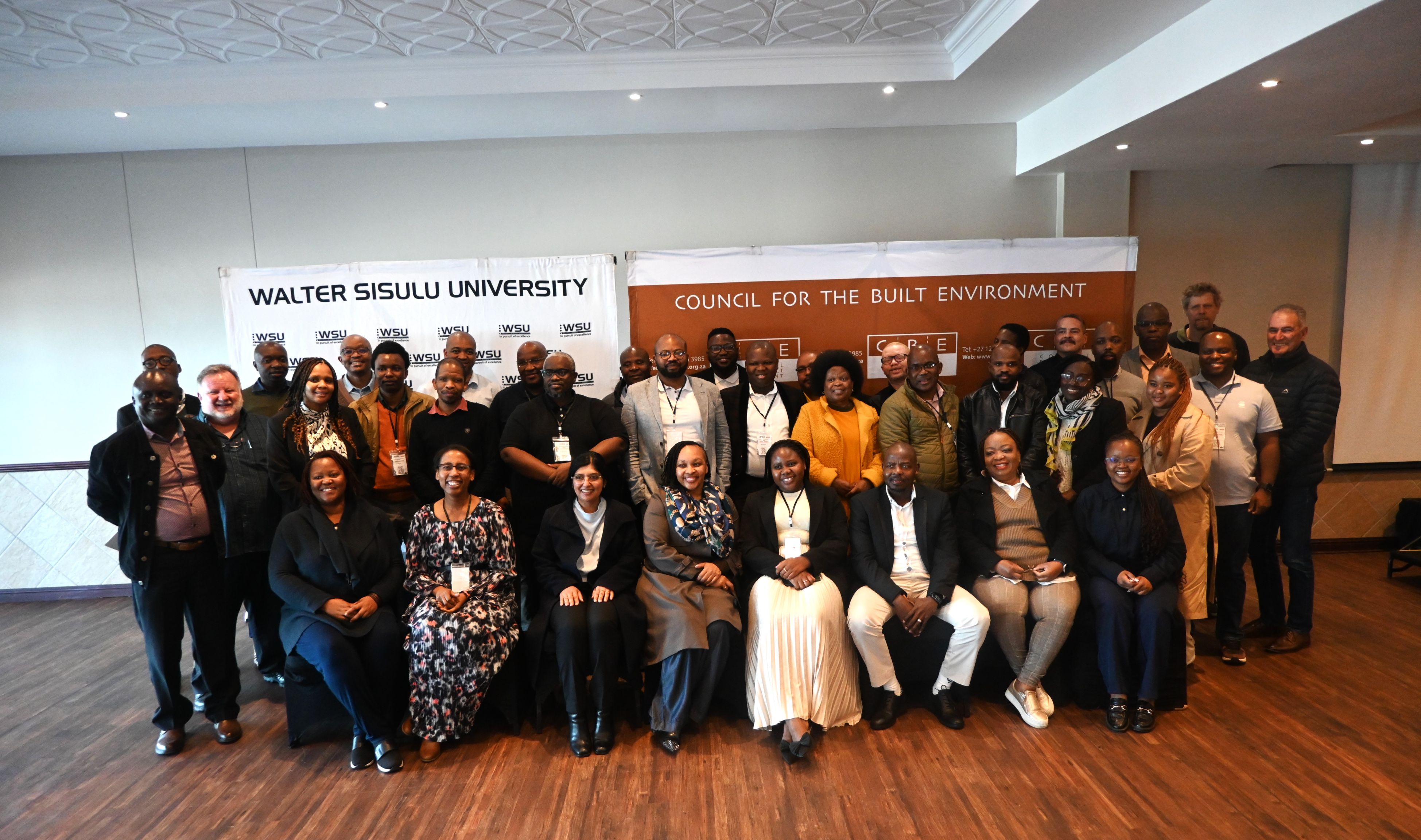CBE & WSU SEMINAR ADDRESSES INFTRASTRUCTURE RESILLIENCE IN THE EASTERN CAPE
The Council for the Built Environment (CBE), in collaboration with the Walter Sisulu University (WSU), hosted a two-day Sustainability Seminar aimed at unearthing impact solutions to mitigate climate change in the Eastern Cape Province.
The theme for this year's seminar was "A Mirror to the Past, Present, and Future of Sustainability in the Eastern Cape."
CBE & WSU brought together industry experts, government officials, and thought leaders to address the most pressing sustainability challenges facing the province.
Delivering the opening address, WSU Vice-Chancellor Professor Rushiella Nolundi Songca highlighted that the seminar stressed the importance of collaboration, as the complex challenges of climate change and sustainability could not be tackled by any single institution alone.
“We must forge meaningful partnerships among academia, government, industry, and community organizations. These collaborations are essential for developing innovative solutions to our multi-faceted challenges. Climate change is no longer a distant threat; it is affecting our communities now. As a higher-education institution, WSU recognises its responsibility to research these issues and integrate climate resilience into our curriculum across disciplines,” said Songca.
In recent years, the province has been increasingly impacted by climate-related disasters such as droughts, floods, and extreme weather events, which disproportionately affected the region’s rural and vulnerable communities, exacerbating poverty, unemployment, and inequality.
Through their collaboration and discourse, CBE & WSU sought to tackle a myriad of topics including climate-resilient infrastructure, water security, renewable energy development, sustainable building practices, as well as policy and governance for sustainability.
Chief Executive Officer of CBE, Dr Msizi Myeza said: "When we started the conversation on climate change, there were questions about whether this aligned with the CBE’s mandate. Legally, it is clear—we have a responsibility in the climate conversation as the country looks towards the built environment for infrastructure that is resilient to natural disasters. We aim to contribute to the long-term transition towards a just and resilient South Africa.”
Discussions were led by stakeholders which included Eastern Cape Department of Public Works and Infrastructure (ECDPWI), South African Local Government Association (SALGA), South African Council for Project and Construction Management Professions (SACPCMP), Agrément SA, and the Green Building Council South Africa (GBCSA).
The seminar's outcomes will shape discussions at the second Built Environment Climate Change Indaba in November, contributing to the national dialogue on climate resilience, decarbonization, and sustainable infrastructure planning.
By Yanga Ziwele

